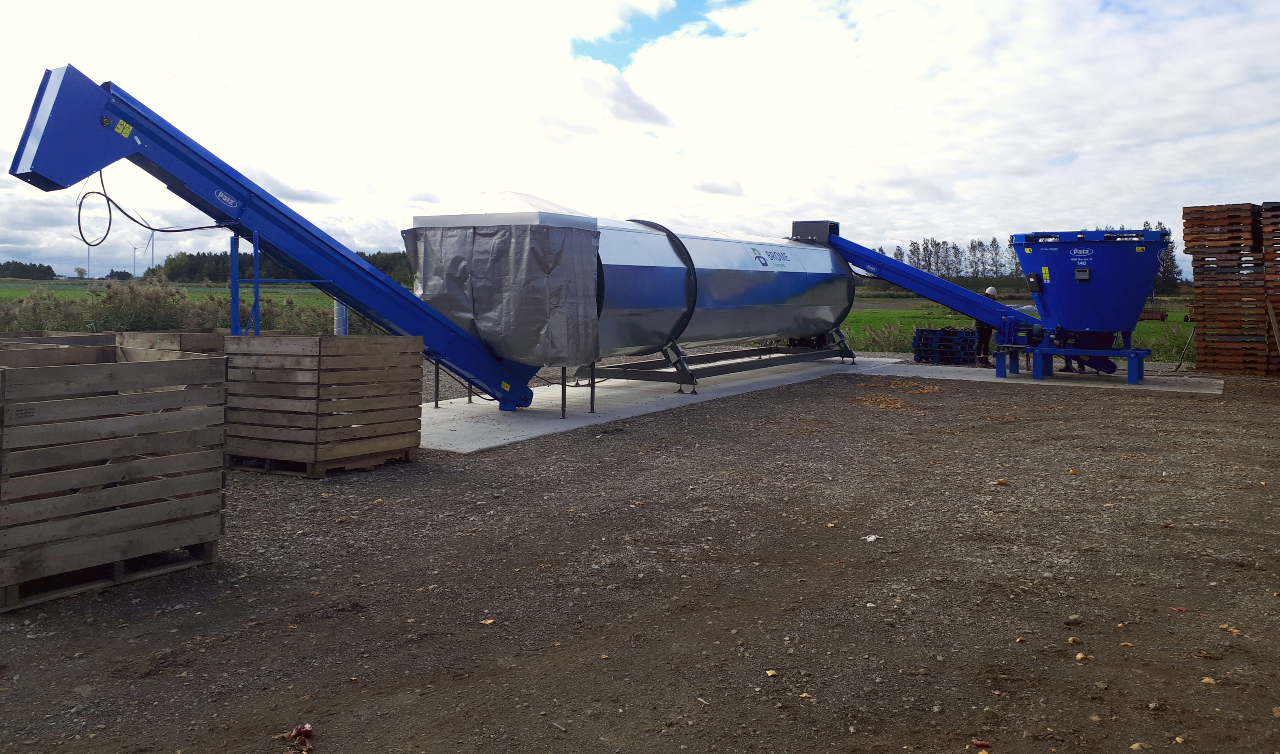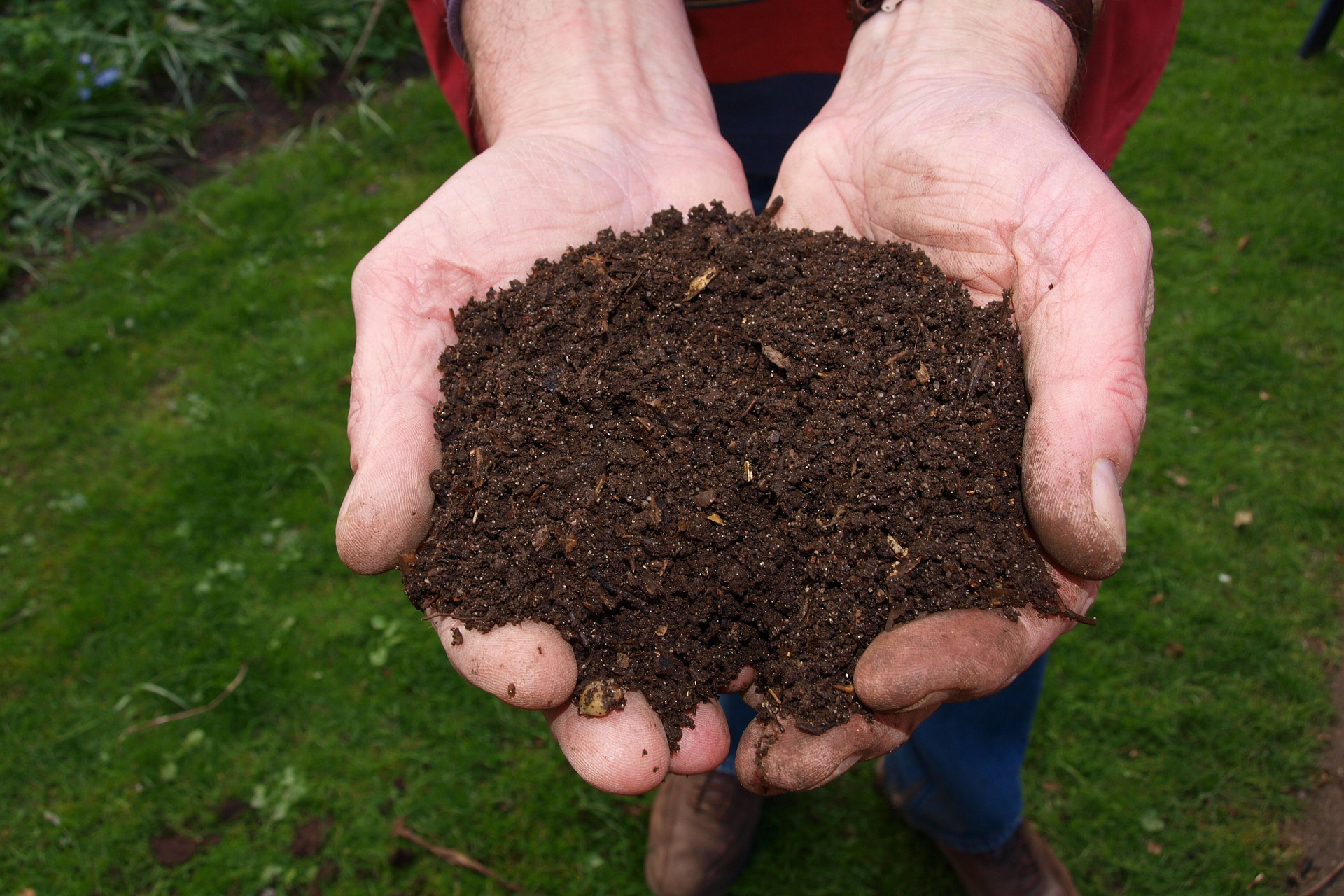Québec’s Prime-Vert 2023-2026 program offers financial support of up to $50,000 or 70% per eligible applicant for the duration of the program.
More and more, agricultural productivity and sustainability are going hand in hand. Better management of green residues from agricultural production can have a significant impact not only on operations, but also on the environment.
In fact, adopting agri-environmental practices such as industrial composting makes it possible to increase the value of these organic residues, whether they come from market gardens, greenhouses or other types of agricultural production.
The Prime-Vert subsidy program for the management of plant residues (information available in French only), organised and run by MAPAQ (Quebec’s Ministry of Agriculture, Fisheries and Food) addresses the needs of Québec farmers seeking financial assistance to improve their management of green waste. In-vessel composting equipment features among the solutions proposed by the ministry. Similar funding opportunities may well be available for farmers and agricultural businesses outside of the Province of Québec.
A more sustainable agricultural sector thanks to industrial composting
Composting green waste maximizes its value while minimizing its environmental impact. In the long run, this contributes to a more sustainable agricultural sector.
For agricultural producers in Quebec who don’t yet have a composting system to manage their residual plant matter, there are several concrete reasons to consider making the switch.
Soil and crop health:
Composting transforms green waste into nutrient-rich, soil-building organic matter that is ideal for land application. This increases the capacity for water retention, reduces soil compaction and improves its aeration.
Composting can also reduce risks to crop health, as non-recycled residues can be infested with insects and diseases that may spread. An industrial composting system uses a rotating cylinder to achieve the thermophilic temperatures needed to reduce these risks.
Potential savings:
Using “made on site” compost can reduce the need for expensive and often environmentally harmful chemical fertilizers.
Environmental impact:
Industrial composting facilitates sound on-site management of green residues, reducing the risk of environmental contamination.
- Leachates:
Storage of green residues on the ground without proper management can generate leachates containing nitrogen and phosphorus. These may reach surface and groundwater, creating concerns for water quality.
- Foul odors and greenhouse gas emissions:
Without proper management, green residues decompose into putrescible matter, which produces methane gas.
For all these reasons, an industrial composting system is one of the best solutions for managing green waste sustainably and efficiently.
Québec’s Prime-Vert 2023-2026 program
The Prime-Vert 2023-2026 program offers financial support of up to $50,000 or 70% per applicant for the duration of the program.
A composting system consisting of a rotary composter, a mixer, and conveyors, such as those manufactured by BROME Compost, is among the options clearly described in the program’s factsheet:
“The implementation of a composting system can include the integrated use of a rotary composter, a mixer, as well as conveyors to move the mixture to and from the composter.’’
(translated from the original French)

BROME Compost is the ONLY company in Québec to offer this type of composting system. In fact, the composting project carried out for vegetable producer Delfland Inc. in 2019 is a perfect example of the type of installation proposed by the MAPAQ.
You can learn more about the advantages and configuration of BROME composting systems, by consulting our Composting plant residues for agricultural producers page.
BROME Compost at your service!
While plant waste treatment projects outside of Québec are not eligible for the Prime-Vert subsidy program, an industrial composting system remains a highly efficient and sustainable solution.
After studying your file and analyzing your specific needs and challenges, the BROME Compost team will suggest the most appropriate model of composter, as well as any complementary equipment required for an efficient operation.
Of course, the BROME Compost team also offers support and advice for applying to other subsidy programs and for any compliance documentation that may be required.
Contact us for more details and to discuss your project!
 Brome Compost
Brome Compost